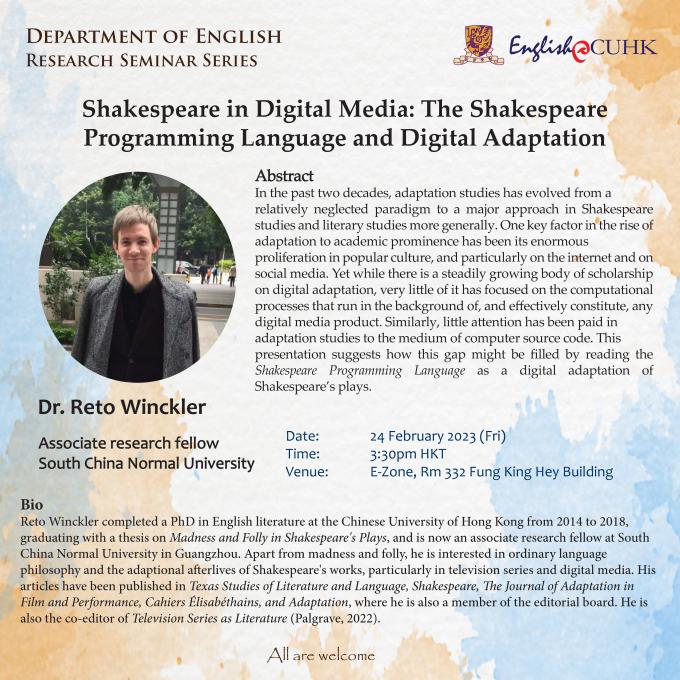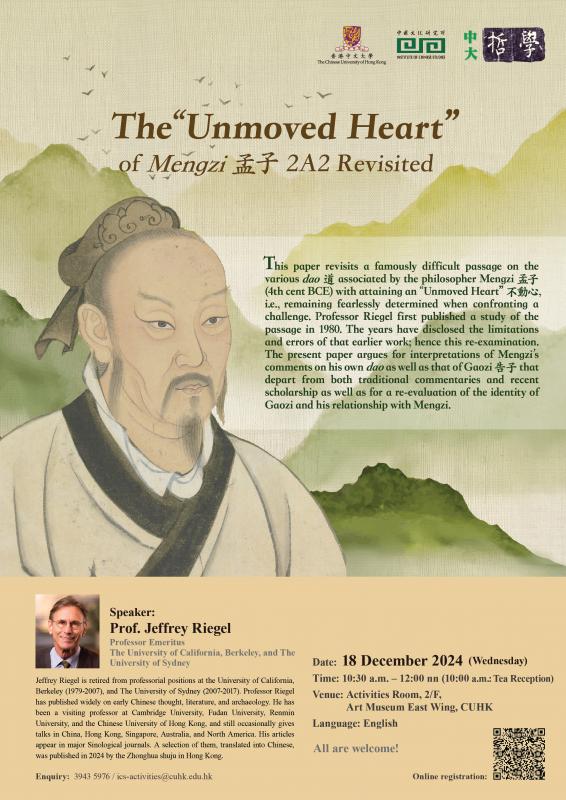
In the past two decades, adaptation studies has evolved from a relatively neglected paradigm to a major approach in Shakespeare studies and literary studies more generally. One key factor in the rise of adaptation to academic prominence has been its enormous proliferation in popular culture, and particularly on the internet and on social media. Yet while there is a steadily growing body of scholarship on digital adaptation, very little of it has focused on the computational processes that run in the background of, and effectively constitute, any digital media product. Similarly, little attention has been paid in adaptation studies to the medium of computer source code. This presentation suggests how this gap might be filled by reading the Shakespeare Programming Language as a digital adaptation of Shakespeare’s plays.
Speaker
Dr. Reto Winckler
Reto Winckler completed a PhD in English literature at the Chinese University of Hong Kong from 2014 to 2018, graduating with a thesis on Madness and Folly in Shakespeare's Plays, and is now an associate research fellow at South China Normal University in Guangzhou. Apart from madness and folly, he is interested in ordinary language philosophy and the adaptional afterlives of Shakespeare's works, particularly in television series and digital media. His articles have been published in Texas Studies of Literature and Language, Shakespeare, The Journal of Adaptation in Film and Performance, Cahiers Élisabéthains, and Adaptation, where he is also a member of the editorial board. He is also the co-editor of Television Series as Literature (Palgrave, 2022).


